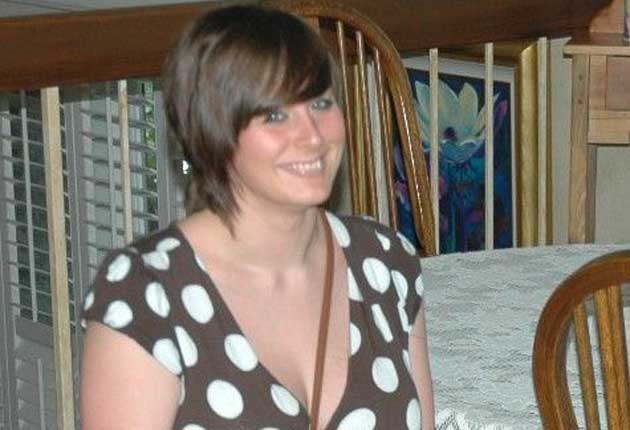Wealth Check: 'Rising rents have forced me to move back home'

Emma Wimpeney, 24, is a PR account manager who has recently moved back home to live with her parents in Edgeley, Stockport, because renting became too expensive for her. She would like to pay off her student debts while saving money. She earns £20,000 at the moment, and would like to increase this to £25,000 by Christmas. Her long-term plan is to earn £40,000 by the time she is 30. Emma says: "I don't own any property. I would like to invest in some, but the odds are against me as I am a first-time buyer and I am struggling to save enough deposit."
Emma built up debts going through further education. She wants to pay these off while also taking some long-term steps towards putting a deposit down on a house. She would like to invest in property when she is older, and live off the profits through retirement.
Advice this week is given by Ajmer Somal from Positive Solutions, David Brunning from Brunning Newman Houghton, and Martin Bamford from Informed Choice.
Case notes
Income: £20,000 as a PR account manager.
Monthly outgoings: tax £182; NICs £105.93; student loan £14; graduate loan £248; petrol £80; car insurance £45; phone bill £40; Cineworld unlimited card £11.99 (total: £726.92).
Debt: £8,000 graduate loan at 6% APR (pays back £248 per month) and £15,000 student loan (pays back £14 per month).
Savings: £800 savings, regular savings/insurance of £250 per month.
Financial goals
Emma moved back home because of rising rents – but David Brunning says this could help her work towards saving for a deposit: "Given that her parents were happy to help her out, would they be in a position to enable her move out again in the form of help with a deposit? Many families are now helping their children buy their first home, because otherwise home ownership may be unattainable."
Martin Bamford agrees that the property market is especially tough for young graduates at the moment. He says: "She will need to save up for a sizeable deposit if she wants to be a property owner, and this means making sacrifices in terms of expenditure now. Improving her salary will certainly help, as long as Emma does not fall into the common "earn more, spend more" trap. Emma must make a conscious effort to use extra earnings to repay debt and save for the future."
Bamford says Emma may want to review her plans to generate income in retirement, as a range of investment, including pension plans and property is more sensible. "Putting all of your eggs in one basket rarely makes good financial sense."
Debts
Ajmer Somal believes Emma should concentrate on clearing her graduate loan of £8,000. "When this is repaid, she could then divert the £248 per month expenditure into saving towards a deposit for a property purchase." He recommends she should maintain the £14 per month payments on her student loan, as the interest rate payable on this debt is low.
However, David Brunning says Emma should check what she is paying towards her student loan: "Her budget says she is paying £14 per month, but with an income of £20,000 the minimum monthly payments are £37. Once she has repaid the graduate loan, she could accelerate her repayment of the student loan, as a lender would take it into account when considering any mortgage application, but overpayments are entirely voluntary."
Martin Bamford stresses the importance of reducing Emma's graduate loan first: "With an interest rate of 6 per cent, this is costing her more than she can hope to earn, net of income tax, from her savings. Assuming the loan provider will not charge her extra for making overpayments, she should focus any surplus income each month on reducing the size of this loan. Mortgage lenders will take this loan into consideration when calculating the maximum she can afford to borrow."
Savings
David Brunning advises Emma to look into getting access to a stakeholder pension through her employer, even if they do not contribute themselves. "People underestimate how much a comfortable retirement will cost, and everyone should start saving for their pension as soon as possible. While she could contribute from £20 per month, a reasonable start would be 3 per cent of her income, £50 gross each month, at a net cost to her of £40. This should be reviewed as her anticipated salary increases happen; her target should be an overall pension contribution between her and her employer, if they pay, of at least 10 per cent of her overall income."
Brunning also advises Emma to get some protection for her income: "She could do this such that she would receive £916 monthly income if she was unable to work for more than six months at a monthly cost of £10. Equally, she could insure for a lump sum of £50,000 payable if she suffered severe ill-health for less than £7 per month."
Ajmer Somal has practical advice for Emma and her savings. He recommends increasing her savings to at least three months' salary, to be used as an emergency fund. "She should also place the £250 per month regular savings budget into a mini cash ISA, preferably an online provider paying a competitive rate of interest. This could eventually be used to fund the deposit for a property."
For a free financial check-up, write to Wealth Check, The Independent, 2 Derry Street, London W8 5HF; or email wealthcheck@independent.co.uk
Subscribe to Independent Premium to bookmark this article
Want to bookmark your favourite articles and stories to read or reference later? Start your Independent Premium subscription today.

Join our commenting forum
Join thought-provoking conversations, follow other Independent readers and see their replies